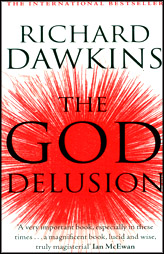Dharma Artha Kama Moksha
Artha-shastra is about generating food, i.e. wealth, by creating goods and services; Kama-shastra is about indulging our hungers with this food. Dharma-shastra insists we consider the hunger of others, while Moksha-shastra is about outgrowing our hungers, in order to be detached and generous. Together, these four Hindu shastras provide a framework within which human action, its purposes and consequences, can be defined; together, they validate human existence and give it meaning.
In Dharma Artha Kama Moksha, Devdutt Pattanaik uses his unique understanding of mythology to provide an accessible and lucid guide to the Hindu way of thinking, with short essays that are crisp expositions of important concepts.
In Dharma Artha Kama Moksha, Devdutt Pattanaik uses his unique understanding of mythology to provide an accessible and lucid guide to the Hindu way of thinking, with short essays that are crisp expositions of important concepts.
Devdutt Pattanaik is a doctor who shifted his focus to Indian mythology and their influence on the people of the country. He has written many books based on Indian epics and Puranas.
Devdutt Pattanaik has written other books based on Hindu epics and other related works. Some of his other books are:
Devi, the Mother-Goddess: an introduction
Shiva: an introduction
Vishnu: an introduction
The Goddess in India: the five faces of the eternal feminine
Hanuman: an introduction
The Man Who Was A Woman and other queer tales of Hindu lore
Lakshmi, the goddess of wealth and fortune: an introduction
His Writing Style
Devdutt Pattanaik's style is simple and elegant, and he adds value by creating his own line drawing illustrations ? an unusual combination. He is not strictly traditional in his retelling, yet he remains true to the original spirit of the stories. He also explores the influence of the epics on Indian thought and their continued relevance to life, even today, thousands of years after the stories were written.
His Personal Life
Devdutt Pattanaik grew up in Mumbai and graduated with a degree in medicine from the Grant Medical College. He later studied Comparative Mythology at Mumbai University.
After working in the Healthcare industry for 14 years, he turned his attention to the wisdom and insights contained in the ancient Hindu texts. He started to write books and columns on the subject and has also delivered many lectures on Indian mythology.
Devdutt Pattanaik has written other books based on Hindu epics and other related works. Some of his other books are:
Devi, the Mother-Goddess: an introduction
Shiva: an introduction
Vishnu: an introduction
The Goddess in India: the five faces of the eternal feminine
Hanuman: an introduction
The Man Who Was A Woman and other queer tales of Hindu lore
Lakshmi, the goddess of wealth and fortune: an introduction
His Writing Style
Devdutt Pattanaik's style is simple and elegant, and he adds value by creating his own line drawing illustrations ? an unusual combination. He is not strictly traditional in his retelling, yet he remains true to the original spirit of the stories. He also explores the influence of the epics on Indian thought and their continued relevance to life, even today, thousands of years after the stories were written.
His Personal Life
Devdutt Pattanaik grew up in Mumbai and graduated with a degree in medicine from the Grant Medical College. He later studied Comparative Mythology at Mumbai University.
After working in the Healthcare industry for 14 years, he turned his attention to the wisdom and insights contained in the ancient Hindu texts. He started to write books and columns on the subject and has also delivered many lectures on Indian mythology.
You need to log in to Rate the book
Top rated books in this category
Other books by the same author
Those who have read this book also read these books













































